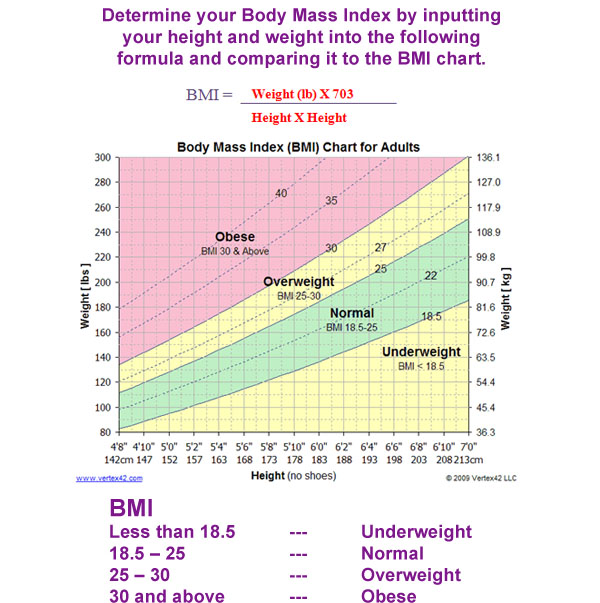COULD YOU BE ONE OF THE 154.7 MILLION ‘OVERWEIGHT’ AMERICANS AND NOT KNOW IT?
Calculate your BMI to estimate your risk for potential heart problems

It is no secret that over the past few decades, Americans have become increasingly oblivious to their own weight problems. The misperception of weight status, particularly the underestimation of BMI categories, has been a reoccurring finding among overweight and obese adults. In order to accurately identify ones potential risk for chronic diseases that correlate to weight gain (i.e. Diabetes, Heart Disease, and High Blood Pressure), it is essential to, first, accurately identify ones own weight status. With such a significant percentage of Americans failing to accurately identify themselves as overweight or obese, more and more adults are shocked to find themselves at a higher risk for heart diseases, without any previous concerns.
One of the most common ways to gauge your weight status is by calculating your Body Mass Index (BMI). The BMI is determined using a formula based on one’s height and weight. A BMI of 18.5-24.9 puts you in a normal weight range. Having a BMI of 25 or more puts you outside of your healthy weight range and into the overweight or obese category. While BMI is neither the only factor correlated to risk for disease, nor a definite measure of your overall health, it is considered to be a reliable indicator of body fat percentage. Additionally, BMI, also, proves to be a suitable assessment of the health risks that can develop with added body fat.
High Blood Pressure occurs when the blood flow force is too high for the artery walls to handle. Excess body fat significantly increases your risk of High Blood Pressure. With a greater amount of body fat tissue, the body requires a greater blood supply of oxygen and nutrients to be provided to those tissues. This increased volume of blood circulating though the arteries also increases the pressure on your artery walls, putting overweight and obese persons at a significantly higher risk of High Blood Pressure – which increases your risk of several other health conditions, such as Heart Disease and Diabetes.
While not the only cause of Type 2 Diabetes, most people develop the disease because they weigh more than their healthy weight range. When your BMI exceeds 25.0 and your body has excess fat, layers of fat can build up on a person’s cells and block the opening that insulin requires to allow glucose into the cell. Because the insulin is unable to work properly, the glucose builds up in the blood stream and cannot properly provide fuel to the cells. In addition to maintaining your own healthy weight, it is especially important to be aware of the risks of overweight children. Studies have shown that one in four overweight children is already showing early signs of Type 2 Diabetes.
High Blood Pressure and improper maintenance of Diabetes are two of the greatest risk factors for developing Heart Disease, which as we have learned, can both be significantly caused by having an unhealthy BMI. Additionally, it has been widely proven that being overweight or obese significantly increases your overall risk of developing several forms of Heart Disease, such as Coronary Artery Disease and Stroke).